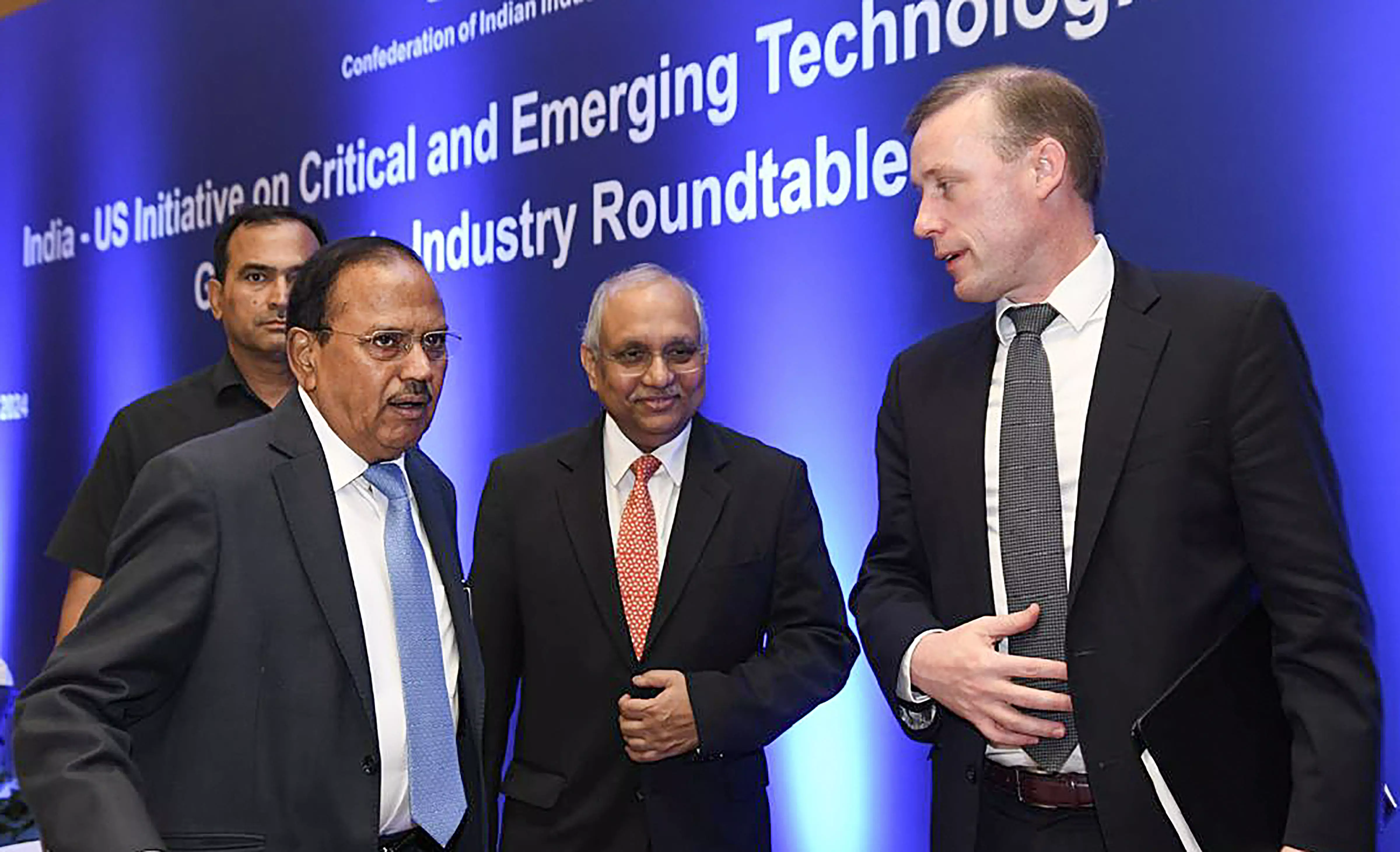India, US Pledge Crucial Tech Ties

New Delhi: India and the United States must remain at the forefront of developing critical technologies as part of a larger strategic interest, national security adviser Ajit Doval said on Tuesday, in the presence of America’s NSA Jake Sullivan, as the US said earlier in the day that the bilateral technological partnership was “anchored in a shared commitment to ensuring that technology is designed, developed and deployed in a manner consistent with our democratic values and respect for universal human rights, as well as a recognition that the future security and prosperity of the Indo-Pacific will hinge on the strength of the US-India partnership”. Both nations are shoring up their partnership in critical technologies known as the initiative on Critical and Emerging Technology (iCET), with an eye on China. Mr Sullivan ended his two-day visit to India on Tuesday.
The US also said that “since the launch of iCET in January 2023, the United States and India have made significant strides toward deepening and expanding strategic cooperation across key technology sectors including space, semiconductors, advanced telecommunications, artificial intelligence, quantum, biotechnology, and clean energy”. According to the US, both NSAs have “set the vision for the next chapter of our strategic technology partnership” and “underscored their commitment to orienting our cooperation around breakthrough achievements in priority critical and emerging technology areas, by focusing our efforts on co-production, co-development, and research and development (R&D) opportunities to ensure we stay at the leading edge of innovation and enhancing coordination with like-minded nations to deliver secure, reliable, and cost-competitive technology solutions for the American and Indian people and our partners around the world”.
Addressing participants at an India- US iCET Roundtable with industry CEOs, organised by the Confederation of Indian Industry, Mr Doval was quoted as saying: “The US and India have got to remain at the forefront of technology in case we need to protect and defend our value systems and it is part of a larger strategic interest… iCET has achieved more than we could imagine.” The US said the industry roundtable brought together CEOs and thought leaders from both countries as the “United States and India mobilise private sector investment and partnerships across strategic technology sectors”.
The two NSAs had earlier Monday chaired the first annual review of the iCET that “aims to position the two countries as trusted technology partners by building technology value chains and support the co-development and co-production of items (and) also aims to address regulatory restrictions, export controls and mobility barriers through a standing mechanism”. It may be noted that the “two NSAs have driven a concerted effort to engage in identified areas of collaboration in diverse domains of new and emerging technologies, including Semiconductors, AI, Quantum Computing, Defence Innovation, Space and Advanced Telecommunications”. In subsequent meetings, “the two sides have included new areas within the iCET framework, including biotechnology, critical minerals & rare earths processing technologies, digital connectivity & digital public infrastructure and advanced materials”.
According to reports, in his address, Mr Sullivan noted three important buckets for technology partnerships, the first being innovation, the second as production, and the third being deployment while highlighting the importance of innovation and emphasised the need for government support for the private sector. He also said that there exists bipartisan support for Indian industry in the US, adding that building the ecosystem and supply chain is the key to production. Mr Sullivan also reportedly said that the core of iCET is about the idea of India and US being able to support each other and to encourage greater collaboration in the technology ecosystem, jointly innovate and find solutions to challenges.
News agency reports said both NSAs assured industry that they welcome it highlighting specific issues and due diligence will be done to resolve any barriers which hold back deeper and closer India-US ties. Representatives from industry also spoke about their experiences of collaboration and the ways and means by which they planned to take India-US collaboration further through government facilitation.

